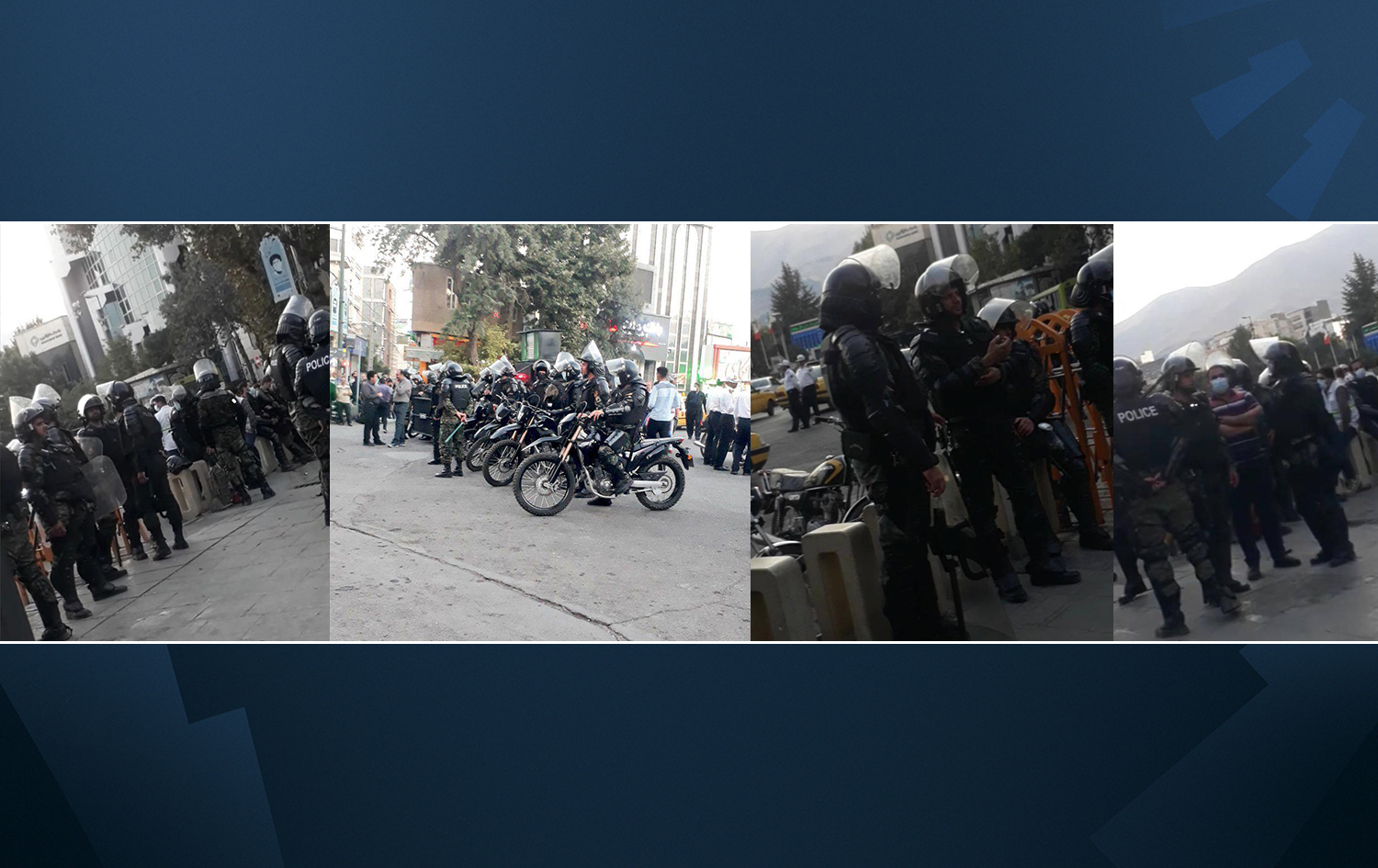ERBIL, Kurdistan Region - Leila is a mother and women’s rights activist in the Kurdish city of Sanandaj in western Iran (Rojhelat), which has been the epicenter of the Iranian security forces’ brutal crackdowns during the weeks-long protests.
She never thought that the death of Mahsa (Zhina) Amini, a young Kurdish woman, in police custody last month would propel people across the country and outside to call for an end to the rule of the Islamic republic.
Like hundreds of thousands of other Iranians, Leila, whose real name has been changed for her safety, took to the street immediately after Amini was buried in her hometown of Saqqez on September 17, shouting “Woman, Life, and Freedom.” She tirelessly continued protesting for 24 consecutive nights, painting a picture of defiant people who are not willing to give up on bringing an end to the regime, even when they are wounded or exhausted.
“A very frightening atmosphere has stretched over the city but I don’t think … people will vacate the streets,” Leila told Rudaw English from the city using a messaging app on Tuesday.
“They are very sensitive about some items in pharmacies such as IVs and wound dressings,” Leila said. “I have a friend who was shot and is wounded and he is being treated at home because he does not dare to go to hospital.”
The authorities in the city have requested more troops from other cities to quell the protests, an escalation which could transform into a full-blown rebellion. Government agents in plain clothes are everywhere, particularly in hospitals to arrest people.
Tehran prosecutor Ali Salehi said on Wednesday that 60 indictments have been issued against protesters and more will be issued in the coming week.
At least four people were killed this week in the city and Hengaw Human Rights Organization reported that a seven year old child was also killed.
“It is not true that all the people wounded were protesters, some were people who were doing their shopping or were collecting their children from school and were shot,” Leila said. Authorities have claimed that protesters have used weapons including AK47, pistols and shotguns but Leila rejects these claims. “One thing that is really important to convey to the outside world is that contrary to the claims, the protesters have no weapons whatsoever.”
The day Leila spoke to Rudaw, Iran’s Minister of Interior Ahmad Vahidi, who was the former head of the Islamic Revolutionary Guard Corps (IRGC) external armed force the Quds Force, arrived in the city and accused Kurdish opposition groups, the US and Israel of being behind the protests.
Most of the Iranian-Kurdish opposition groups have armed wings, a fact which has alarmed authorities in Tehran. The IRGC fired a barrage of short range ballistic missiles and Kamikaze drones last month at the bases of these groups in the neighboring Kurdistan Region, where they are located, accusing them of being behind the wave of protests.
On Tuesday, a post on the IRGC Twitter account threatened to invade the Kurdistan Region to eradicate the Kurdish opposition groups once and for all.
The threatening language used by the IRGC against the groups is matched by its brutality in the Kurdish areas of the country where at least 30 protesters have been killed and nearly 1,000 wounded, according to Paris-based Kurdistan Human Rights Network.
As pressure from the protests mounts, Leila said she had seen changes in the way authorities behave towards them, adding that they sometimes go on a rampage smashing car windows to then blame it on the protesters. “They used to use pellet guns but now they use live ammunition and there is no warning, they directly shoot at you.”
Leila confirmed the claims by rights monitors claiming that the authorities have detained hundreds of people, perhaps even thousands. “I have seen tens of people around me detained, almost every day,” Leila said. “They are tortured to confess on TV that they had guns and are agents of other states.”
Protests have continued across Iran for the past four weeks with university and school students at the forefront of the demonstrations, chanting “death to dictatorship” and calling for a regime change. In recent days, workers from petrochemical plants in southeast Iran, who played a critical role in the 1979 revolution, joined the protests by blocking the roads in solidarity with protesters.
It is difficult to predict where protests are heading and whether change is possible in Iran, but for Leila, this wave of protests is an unprecedented display of unity among the Iranian people. “This is not a joke, since the Islamic Republic came to power, this is the first time that people in Sanandaj have protested for 24 consecutive nights.”
“Where these protests are going, will it die down or not,” Leila said in an audio message. “Honestly, it is not in anyone’s hands because the people on the streets did not come out at anyone’s request to then go home at their command.”









Comments
Rudaw moderates all comments submitted on our website. We welcome comments which are relevant to the article and encourage further discussion about the issues that matter to you. We also welcome constructive criticism about Rudaw.
To be approved for publication, however, your comments must meet our community guidelines.
We will not tolerate the following: profanity, threats, personal attacks, vulgarity, abuse (such as sexism, racism, homophobia or xenophobia), or commercial or personal promotion.
Comments that do not meet our guidelines will be rejected. Comments are not edited – they are either approved or rejected.
Post a comment